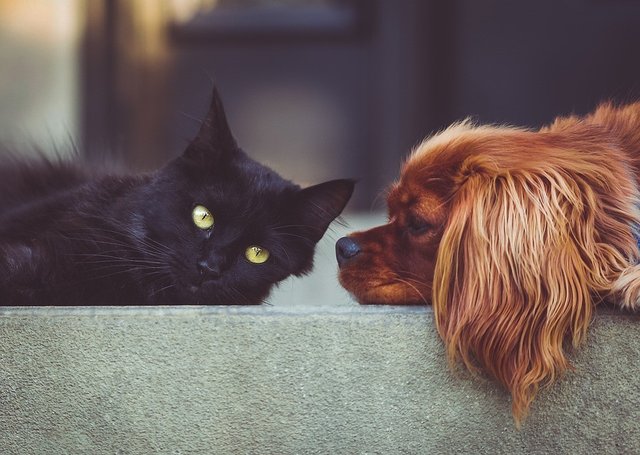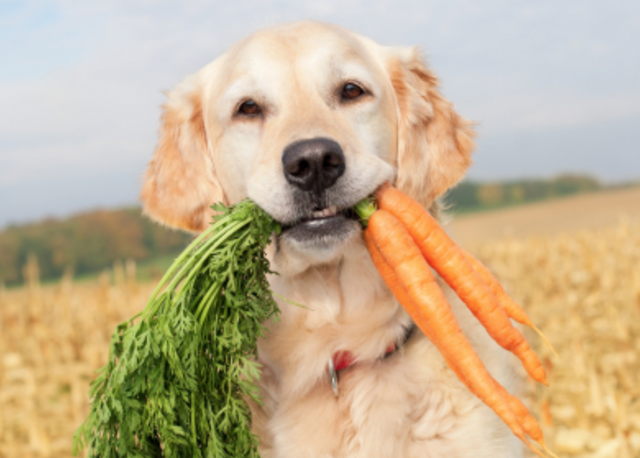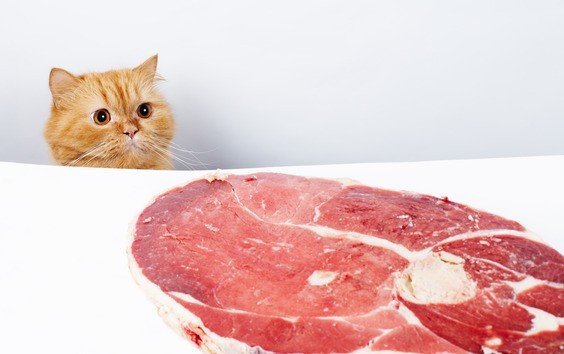Why turning your pet into a vegan is not an entirely crazy idea
Written by Morgana Chess on 28 May 2018
The popularity of veganism is at an all-time high, with millions of people swapping out their beef steaks for tofu in a bid to improve health, animal welfare and protect the planet. But could the plant-based diet also be an option for our little furry friends?
It’s been found that the pet food of cats and dogs makes up 25 to 30 percent of the environmental impact of meat consumption in the United States. Chew on that.
Nowadays, people tend to view their pets less as pets and more as part of the family, so they buy higher quality meat-based products that humans themselves can eat. Dogs and cats, however, are actually able to digest a lot more than humans can and it’s not very sustainable for them to munch on premium products when they would be absolutely fine with less sophisticated food. While they share our homes, they don't need to share our dinner plates.
Also, from an animal rights standpoint, how ethical is it to make our domestic pets as happy as possible whilst turning a blind eye to the millions of other animals being slaughtered to fill their food bowls?
UCLA geography professor Gregory Okin calculated that the meat-based pet food consumed by cats and dogs generates about 64 million tons of carbon dioxide a year, which is equivalent to a year's worth of driving 13.6 million cars. This carbon pawprint is significant and, sadly, generally overlooked.
Could it be that pets making a switch to a vegan diet would be better for the environment? Guess so. But then what about their health?
The company Wild Earth think they have found a sustainable solution. Using biotechnology, they are able to turn a type of fungus called koji (found in Japanese foods like soy sauce and miso) into a high quality source of protein. Making this protein into pet food puts less strain on the environment and is free from animal cruelty; is it a no-brainer?
There is a lack of published research on the idea right now, but there is a lot of evidence suggesting that veganism for pets can work, and it’s something that companies like Wild Earth are certainly willing to explore. If plant-based food has been so successful for humans, why not for animals?
The Smart Canine
Experts suggest that dogs can more accurately be classified as omnivores than carnivores, so in theory they can also survive on a vegetarian or vegan diet. However, just as with humans, it has to be carefully designed to ensure that they still get all of the right vitamins and nutrients.
In 2002, the collie Bramble lived to the ripe old age of 27 (189 dog years) on a purely vegan diet of rice, lentils, and vegetables, and held the Guinness World Record for oldest living dog at the time. Bramble’s story shows that dogs can not only survive on a vegan diet, they can thrive.
Cats on the other hand, are obligate carnivores, and meat is an essential part of their diet, although they can eat plant-based foods too. In response to this information, Ryan Bethencourt and his team at Wild Earth are working on a lab-grown cat food made from cultured mouse cells, which would both give cats the meat protein they need and reduce their environmental impact.
Shutterstock
This approach has provoked worry in some corners though, with concerns that "the cat food is Bethencourt’s Trojan horse to introduce lab-grown meat for humans." The idea of "clean meat" is indeed being looked into as a sustainable food source, as growing meat directly from the animal cells skips the long process of factory farming and reduces the negative environmental impact.
Bethencourt says, "If I was asked: 'In 10 years’ time are we going have clean meat?' Without a doubt. In five years’ time, I’m hopeful."
For humans and pets alike, food sustainability is a serious issue that needs to be tackled and the introduction of a little plant-based kibble looks like a step in the right direction. Feeding your pets some more veggie alternatives won't do them, or the planet, any harm and in fact— it's more likely to do a whole load of good.
If you want to know more about our projects, head to our website. And let us know about your feedback, suggestions, and ideas in the comments below. 🙏
Because Kind is not enough. Join Kinder!



Hi! I am a robot. I just upvoted you! I found similar content that readers might be interested in:
https://www.kinder-world.org/articles/you/why-turning-your-pet-into-a-vegan-is-not-an-entirely-crazy-idea-18066
You got a 6.29% upvote from @upmewhale courtesy of @kinderworld!
Earn 100% earning payout by delegating SP to @upmewhale. Visit http://www.upmewhale.com for details!
Thanks for the great article! I actually haven't researched anything about this topic yet, mainly because I don't have pets right now - but nevertheless I was often wondering which would be the best approach for pets and what is the science behind it. So now I at least have some idea about the struggle with pet food and its possible solutions 😉 And is seems like there are many innovative ideas to tackle this issue towards a more compassionate approach to feeding our beloved animals.
I love how you referred to their impact as "carbon pawprint", by the way!
Hi @kinderworld I have upvote you and following. Pls gollw me back